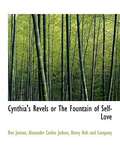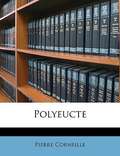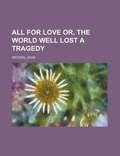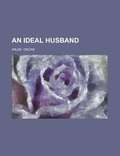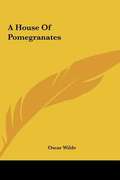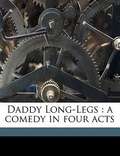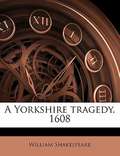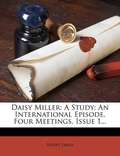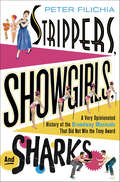- Table View
- List View
Moving Shakespeare Indoors
by Andrew Gurr Farah Karim-CooperShakespeare's Company, the King's Men, played at the Globe, and also in an indoor theatre, the Blackfriars. The year 2014 witnesses the opening of the Sam Wanamaker Playhouse, based on seventeenth-century designs of an indoor London theatre and built within the precincts of the current Globe on Bankside. This volume, edited by Andrew Gurr and Farah Karim-Cooper, asks what prompted the move to indoor theatres, and considers the effects that more intimate staging, lighting and music had on performance and repertory. It discusses what knowledge is required when attempting to build an archetype of such a theatre, and looks at the effects of the theatre on audience behaviour and reception. Exploring the ways in which indoor theatre shaped the writing of Shakespeare and his contemporaries in the late Jacobean and early Caroline periods, this book will find a substantial readership among scholars of Shakespeare and Jacobean theatre history.
Women and Shakespeare in the Eighteenth Century
by Fiona RitchieFiona Ritchie analyses the significant role played by women in the construction of Shakespeare's reputation which took place in the eighteenth century. The period's perception of Shakespeare as unlearned allowed many women to identify with him and in doing so they seized an opportunity to enter public life by writing about and performing his works. Actresses (such as Hannah Pritchard, Kitty Clive, Susannah Cibber, Dorothy Jordan and Sarah Siddons), female playgoers (including the Shakespeare Ladies Club) and women critics (like Charlotte Lennox, Elizabeth Montagu, Elizabeth Griffith and Elizabeth Inchbald), had a profound effect on Shakespeare's reception. Interdisciplinary in approach and employing a broad range of sources, this book's analysis of criticism, performance and audience response shows that in constructing Shakespeare's significance for themselves and for society, women were instrumental in the establishment of Shakespeare at the forefront of English literature, theatre, culture and society in the eighteenth century and beyond.
Medea
by Donald. J. MastronardeThis edition presents Medea, the most famous play of the Athenian tragedian Euripides, in ancient Greek, with commentary designed for university Greek classes, from second-year Greek upward. It helps students experience a classic drama as they work through the process of careful translation and gives them an appreciation of the work's artistry and its relation to its culture and performance tradition. The introduction summarizes interpretive and cultural issues raised by the play and provides background on important aspects of Greek tragedy, including language, style, and metre.
Aristophanes' Thesmophoriazusae
by Ashley ClementsAristophanes' comic masterpiece Thesmophoriazusae has long been recognized amongst the plays of Old Comedy for its deconstruction of tragic theatricality. This book reveals that this deconstruction is grounded not simply in Aristophanes' wider engagement with tragic realism. Rather, it demonstrates that from its outset Aristophanes' play draws upon Parmenides' philosophical revelations concerning reality and illusion, employing Eleatic strictures and imagery to philosophize the theatrical situation, criticize Aristophanes' poetic rival Euripides as promulgator of harmful deceptions, expose the dangerous complicity of Athenian theatre audiences in tragic illusion, and articulate political advice to an audience negotiating a period of political turmoil characterized by deception and uncertainty (the months before the oligarchic coup of 411 BC). The book thereby restores Thesmophoriazusae to its proper status as a philosophical comedy and reveals hitherto unrecognized evidence of Aristophanes' political use of Eleatic ideas during the late fifth century BC.
Shakespeare's Possible Worlds
by Simon PalfreyNew methods are needed to do justice to Shakespeare. His work exceeds conventional models, past and present, for understanding playworlds. In this book, Simon Palfrey goes right to the heart of early modern popular drama, revealing both how it works and why it matters. Unlike his contemporaries, Shakespeare gives independent life to all his instruments, and to every fraction and fragment of the plays. Palfrey terms these particles 'formactions' - theatre-specific forms that move with their own action and passion. Palfrey's book is critically daring in both substance and format. Its unique mix of imaginative gusto, thought experiments, and virtuosic technique generates piercing close readings of the plays. There is far more to playlife than meets the eye. Influenced by Leibniz's visionary original model of possible worlds, Palfrey opens up the multiple worlds of Shakespeare's language, scenes, and characters as never before.
Shakespeare and the Digital World
by Christie Carson Peter KirwanDue to the unique cultural capital of his works, Shakespeare has long been the test subject for new methods and digital advances in arts scholarship. Shakespeare sits at the forefront of the digital humanities – in archiving, teaching, performance and editing – impacting on scholars, theatres and professional organisations alike. The pace at which new technologies have developed is unprecedented (and the pressure to keep up is only growing). This book offers seventeen new essays that assess the opportunities and pitfalls presented by the twenty-first century for the ongoing exploration of Shakespeare. Through contributions from a broad range of scholars and practitioners, including case studies from those working in the field, the collection engages with the impact of the digital revolution on Shakespeare studies. By assessing and mediating this sometimes controversial digital technology, the book is relevant to those interested in the digital humanities as well as to Shakespeare scholars and enthusiasts.
The Cambridge Companion to Greek Comedy
by Martin RevermannGreek comedy flourished in the fifth and fourth centuries BC, both in and beyond Athens. Aristophanes and Menander are the best-known writers whose work is in part extant, but many other dramatists are known from surviving fragments of their plays. This sophisticated but accessible introduction explores the genre as a whole, integrating literary questions (such as characterisation, dramatic technique or diction) with contextual ones (for example audience response, festival context, interface with ritual or political frames). In addition, it also discusses relevant historical issues (political, socio-economic and legal) as well as the artistic and archaeological evidence. The result provides a unique panorama of this challenging area of Greek literature which will be of help to students at all levels and from a variety of disciplines but will also provide stimulus for further research.
Paratexts in English Printed Drama to 1642
by Thomas L. Berger Sonia MassaiThe paratexts in early modern English playbooks the materials to be found primarily in their preliminary pages and end matter provide a rich source of information for scholars interested in Shakespeare, Renaissance Drama and the History of the Book. In addition, these materials offer valuable insights into the rise of dramatic authorship in print, early modern attitudes towards theatre, notorious literary wrangles and the production of drama both on the stage and in the printing house. This unique two-volume reference is the first to include all paratextual materials in early modern English playbooks, from the emergence of print drama to the closure of the theatres in 1642. The texts have been transcribed from their original versions and presented in old-spelling. With an introduction, user's guide, multiple indices and a finding list, the editors provide a comprehensive overview of seminal texts which have never before been fully transcribed, annotated and cross-referenced. "
The Theatrical Public Sphere
by Christopher B. BalmeThe concept of the public sphere, as first outlined by German philosopher Jürgen Habermas, refers to the right of all citizens to engage in debate on public issues on equal terms. In this book, Christopher B. Balme explores theatre's role in this crucial political and social function. He traces its origins and argues that the theatrical public sphere invariably focuses attention on theatre as an institution between the shifting borders of the private and public, reasoned debate and agonistic intervention. Chapters explore this concept in a variety of contexts, including the debates that led to the closure of British theatres in 1642, theatre's use of media, controversies surrounding race, religion and blasphemy, and theatre's place in a new age of globalised aesthetics. Balme concludes by addressing the relationship of theatre today with the public sphere and whether theatre's transformation into an art form has made it increasingly irrelevant for contemporary society.
Staging Conventions in Medieval English Theatre
by Philip ButterworthHow was medieval English theatre performed? Many of the modern theatrical concepts and terms used today to discuss the nature of medieval English theatre were never used in medieval times. Concepts and terms such as character, characterisation, truth and belief, costume, acting style, amateur, professional, stage directions, effects and special effects are all examples of post-medieval terms that have been applied to the English theatre. Little has been written about staging conventions in the performance of medieval English theatre and the identity and value of these conventions has often been overlooked. In this book, Philip Butterworth analyses dormant evidence of theatrical processes such as casting, doubling of parts, rehearsing, memorising, cueing, entering, exiting, playing, expounding, prompting, delivering effects, timing, hearing, seeing and responding. All these concerns point to a very different kind of theatre to the naturalistic theatre produced today.
Nonsense and Meaning in Ancient Greek Comedy
by Stephen E. KiddThis book examines the concept of 'nonsense' in ancient Greek thought and uses it to explore the comedies of the fifth and fourth centuries BCE. If 'nonsense' (phluaria, lēros) is a type of language felt to be unworthy of interpretation, it can help to define certain aspects of comedy that have proved difficult to grasp. Not least is the recurrent perception that although the comic genre can be meaningful (i. e. contain political opinions, moral sentiments and aesthetic tastes), some of it is just 'foolery' or 'fun'. But what exactly is this 'foolery', this part of comedy which allegedly lies beyond the scope of serious interpretation? The answer is to be found in the concept of 'nonsense': by examining the ways in which comedy does not mean, the genre's relationship to serious meaning (whether it be political, aesthetic, or moral) can be viewed in a clearer light.
Shakespeare Performance Studies
by W. B. WorthenTaking a 'performance studies' perspective on Shakespearean theatre, W. B. Worthen argues that the theatrical event represents less an inquiry into the presumed meanings of the text than an effort to frame performance as a vehicle of cultural critique. Using contemporary performances as test cases, Worthen explores the interfaces between the origins of Shakespeare's writing as literature and as theatre, the modes of engagement with Shakespeare's plays for readers and spectators, and the function of changing performance technologies on our knowledge of Shakespeare. This book not only provides the material for performance analysis, but places important contemporary Shakespeare productions in dialogue with three influential areas of critical discourse: texts and authorship, the function of character in cognitive theatre studies, and the representation of theatre and performing in the digital humanities. This book will be vital reading for scholars and advanced students of Shakespeare and of Performance Studies.
Lycurgan Athens and the Making of Classical Tragedy
by Johanna HaninkThrough a series of interdisciplinary studies this book argues that the Athenians themselves invented the notion of 'classical' tragedy just a few generations after the city's defeat in the Peloponnesian War. In the third quarter of the fourth century BC, and specifically during the 'Lycurgan Era' (338-322 BC), a number of measures were taken in Athens to affirm to the Greek world that the achievement of tragedy was owed to the unique character of the city. By means of rhetoric, architecture, inscriptions, statues, archives and even legislation, the 'classical' tragedians (Aeschylus, Sophocles and Euripides) and their plays came to be presented as both the products and vital embodiments of an idealised Athenian past. This study marks the first account of Athens' invention of its own theatrical heritage and sheds new light upon the interaction between the city's literary and political history.
Tales from Shakespeare
by Graham HoldernessIn this engaging new book, writer and critic Graham Holderness shows how a classic Shakespeare play can be the source for a modern story, providing a creative 'collision' between the Shakespeare text and contemporary concerns. Using an analogy from particle physics, Holderness tests his methodology through specific examples, structured in four parts: a recreation of performances of Hamlet and Richard II aboard the East India Company ship the Red Dragon in 1607; an imagined encounter between Shakespeare and Ben Jonson writing the King James Bible; the creation of a contemporary folk hero based on Coriolanus and drawing on films such as Skyfall and The Hurt Locker; and an account of the terrorist bombing at a performance of Twelfth Night in Qatar in 2005. These pieces of narrative and drama are interspersed with literary criticism, each using a feature of the original Shakespeare play or its performance to illuminate the extraordinary elasticity of Shakespeare. The 'tales' provoke questions about what we understand to be Shakespeare and not-Shakespeare, making the book of vital interest to students, scholars, and enthusiasts of Shakespeare, literary criticism and creative writing.
Shakespeare and Renaissance Ethics
by Patrick Gray John D. CoxWritten by a distinguished international team of contributors, this volume explores Shakespeare's vivid depictions of moral deliberation and individual choice in light of Renaissance debates about ethics. Examining the intellectual context of Shakespeare's plays, the essays illuminate Shakespeare's engagement with the most pressing moral questions of his time, considering the competing claims of politics, Christian ethics and classical moral philosophy, as well as new perspectives on controversial topics such as conscience, prayer, revenge and suicide. Looking at Shakespeare's responses to emerging schools of thought such as Calvinism and Epicureanism, and assessing comparisons between Shakespeare and his French contemporary Montaigne, the collection addresses questions such as: when does laughter become cruel? How does style reflect moral perspective? Does shame lead to self-awareness? This book is of great interest to scholars and students of Shakespeare studies, Renaissance studies and the history of ethics.
Cynthia's Revels; Or, The Fountain of Self-Love
by Ben JonsonThe play begins with three pages disputing over the black cloak usually worn by the actor who delivers the prologue. They draw lots for the cloak, and one of the losers, Anaides, starts telling the audience what happens in the play to come; the others try to suppress him, interrupting him and putting their hands over his mouth. Soon they are fighting over the cloak and criticizing the author and the spectators as well. In the play proper, the goddess Diana, also called Cynthia, has ordained a "solemn revels" in the valley of Gargaphie in Greece. The gods Cupid and Mercury appear, and they too start to argue. Mercury has awakened Echo, who weeps for Narcissus, and states that a drink from Narcissus's spring causes the drinkers to "Grow dotingly enamored of themselves." The courtiers and ladies assembled for the Cynthia's revels all drink from the spring.
Polyeucte
by Pierre CorneilleThis is a reproduction of a book published before 1923. This book may have occasional imperfections such as missing or blurred pages, poor pictures, errant marks, etc. that were either part of the original artifact, or were introduced by the scanning process. We believe this work is culturally important, and despite the imperfections, have elected to bring it back into print as part of our continuing commitment to the preservation of printed works worldwide. We appreciate your understanding of the imperfections in the preservation process, and hope you enjoy this valuable book.
All for Love; Or, The World Well Lost: A Tragedy
by John DrydenAll for Love or, the World Well Lost, is a heroic drama by John Dryden written in 1677. Today, it is Dryden's best-known and most performed play. <P> <P> It is a tragedy written in blank verse and is an attempt on Dryden's part to reinvigorate serious drama. It is an acknowledged imitation of Shakespeare’s Antony and Cleopatra, and focuses on the last hours of the lives of its hero and heroine.
An Ideal Husband
by Oscar WildeAn Ideal Husband is an 1895 comedic stage play by Oscar Wilde which revolves around blackmail and political corruption, and touches on the themes of public and private honour. The action is set in London, in "the present", and takes place over the course of twenty-four hours. <P> <P> "Sooner or later," Wilde notes, "we shall all have to pay for what we do." But he adds that, "No one should be entirely judged by their past." Together with The Importance of Being Earnest, it is often considered Wilde's dramatic masterpiece. After Earnest, it is his most popularly produced play.
A House of Pomegranates
by Oscar WildeA House of Pomegranates is a collection of fairy tales, written by Oscar Wilde, that was published in 1891 as a second collection for The Happy Prince and Other Tales (1888). Wilde once said that this collection was "intended neither for the British child nor the British public." <P> <P> The stories included in this collection are as follows: The Young King The Birthday of the Infanta The Fisherman and his Soul The Star-Child
Daddy Long-Legs: A Comedy in Four Acts
by Jean WebsterA trustee of the John Grier orphanage has offered to send Judy Abbott to college. The only requirements are that she must write to him every month and that she can never know who he is. Judy's life at college is a whirlwind of friends, classes, parties and a growing friendship with the handsome Jervis Pendleton. With so much happening in her life, Judy can scarcely stop writing to 'Daddy-Long-Legs', or wondering who her mysterious benefactor is...
A Yorkshire Tragedy
by ShakespeareThe plot of the play is based on the biographical account of Walter Calverley of Calverley Hall, Yorkshire, who was executed on 5 August 1605 for murdering two of his children and stabbing his wife. <P> <P> The crimes were a well-known scandal of the day; a pamphlet on the case was issued in June 1605, with a ballad following in July. The chronicler John Stow reported the case in his Annals.[1][2] The murders were also dramatised in a play titled The Miseries of Enforced Marriage (1607), by George Wilkins. Scholars have disagreed on the relationship between Wilkins's play and A Yorkshire Tragedy; some of have seen one play as a source for the other, or even the work of the same author, while others regard the two dramas as essentially separate works.[3]
Die Leiden des jungen Werther -- Band 2
by Johann Wolfgang Von GoetheMost of The Sorrows of Young Werther is presented as a collection of letters written by Werther, a young artist of a sensitive and passionate temperament, to his friend Wilhelm. These give an intimate account of his stay in the fictional village of Wahlheim (based on Garbenheim, near Wetzlar),[citation needed] whose peasants have enchanted him with their simple ways. There he meets Charlotte, a beautiful young girl who takes care of her siblings after the death of their mother. Werther falls in love with Charlotte despite knowing beforehand that she is engaged to a man named Albert eleven years her senior.[3]
Daisy Miller: A Study
by Henry JamesAmerican teenager Daisy miller was on a holiday--and Europe might never recover. From Switzerland to Rome, she caused scandals everywhere: because Daisy Miller did whatever she wanted, with whomever she wanted, whenever she chose.
Strippers, Showgirls, and Sharks: A Very Opinionated History of the Broadway Musicals That Did Not Win the Tony Award
by Peter Filichia"Wait..Gypsy didn't win the Tony for Best Musical?"That's a question that gets asked over and over again, every time a new Rose takes to the runway in the Broadway classic "Gypsy". In "Strippers, Showgirls and Sharks", the popular syndicated theatre critic Peter Filichia chronicles the history of the American musical by looking at those shows that did not win the Tony Award for Best Musical. It happens every spring: The American Theatre Wing bestows its annual awards. Only those shows that have reached Broadway are nominated and while all Tony Awards are created equal in height, width and depth, the universally acknowledged biggest prize is the Best Musical Tony. The envelope is opened. The winner is announced and, then, the screeching begins. "Oh no! They gave it to that?" Did the best musical always win the Best Musical prize? Were there other factors that kept a more deserving show from copping the prize? Peter Filichia answers all these questions and more in "Strippers, Showgirls and Sharks" as he looks at many of the 153 previous Best Musical Nominees that didn't win the big prize. What were the biggest omissions? "Gypsy" had the distinct displeasure of not being either the first or second choice of the committee. In 1959 when Ethel Merman and a variety of strippers took the stage, the Tony for Best Musical was a tie between "The Sound of Music" and "Fiorello". In 1971, Stephen Sondheim's "Follies" and its ghostly showgirls lost to a "groovy" re-tuning of "Two Gentlemen of Verona" that hasn't passed the test of time. And, in 1957, "West Side Story", its Jets and Sharks, were bested by the fine people of River City Iowa singing their Americana hearts out in "The Music Man". If you love Broadway, scratch your head on Tony Award night and still can't figure out how a show you loathed won the Tony for Best Musical, you will love riding through the years with Peter Filichia, one of America's most respected and popular theatre critics.

